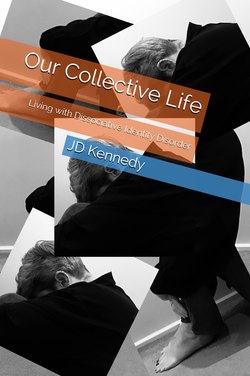Читать книгу Our Collective Life - JD Kennedy - Страница 12
На сайте Литреса книга снята с продажи.
Jo
ОглавлениеJo opened her eyes and noticed she was sitting on the floor with her knees pulled up to her chest. She could feel the heart was beating fast, and she took a shaky breath as she tried to straighten her legs. This was another thing she didn’t understand. She would find herself in sitting in strange, almost unnatural positions, and sometimes her heart was beating so fast she could barely breathe. What was that about? It was like she was really scared of something, but she had no idea what it was.
Trying to calm the thudding of her heart, she took some deep breaths, before her mind started the circling of the drain that it frequently did.
She was so alone. She had nobody who she could talk to, nobody who understood. I mean, she didn’t understand, so how could anyone else? The truth was she was tired, so tired of fighting all the time, so tired of struggling to stay alive. Every day was a struggle. Every morning when she woke up she felt the dread creep in, that horrid feeling that she had to cope for yet another day.
Jo couldn’t remember a time when she felt normal. It wasn’t a feeling she could describe or explain in any way that made sense. She just knew she felt like something was wrong, that something was broken on the inside.
As a child she didn’t realise how different she was. She didn’t know other people didn’t hear voices in their head all the time. It was as she got a little older when people looked at her strangely that she realised other people didn’t have a life like hers or didn’t feel like mere passengers in their own life.
When she was 15 or 16, the depression reared its head. She started scratching at the arm, frantically scratching all the skin off, which was the beginning of the self-injury. Later on the self-harm escalated to cutting and burning although if she was honest, she didn’t really remember doing any of that. Life careened down a slippery slope at a rate of speed Jo couldn’t keep up with, and a few years later, she had her first admission into the psychiatric ward, which was the first of many.
In the early years, she fought hard to keep going. When the depression and self-harm first hit she tried counselling, but the school counsellors were (in their words) ‘not equipped to handle her case’. She tried keeping a diary as that was supposed to help her draw out those feelings and express them. Yet once she saw different hand writings on the page, she stopped doing that.
When Jo had her first admission into the psychiatric hospital when she was 20 years old, her family didn’t bother to hide their disappointment and embarrassment. They made it very clear she had allowed herself to be dragged down by her weakness.
Jo knew they were right. She wasn’t a strong person, not like the rest of the family. She lacked the strength of character to not let life get to her. She was just one big disappointment.
She wasn’t sure if she believed in reincarnation, but she hoped it was real. She would have a chance to put it right the next life. She would not let (what her mother called) ‘normal childhood experiences’ get her down and affect her whole life. She would get it right, she wouldn’t be an embarrassment to her family for being weak and having ‘mental problems’.
Don’t tell, don’t tell.
